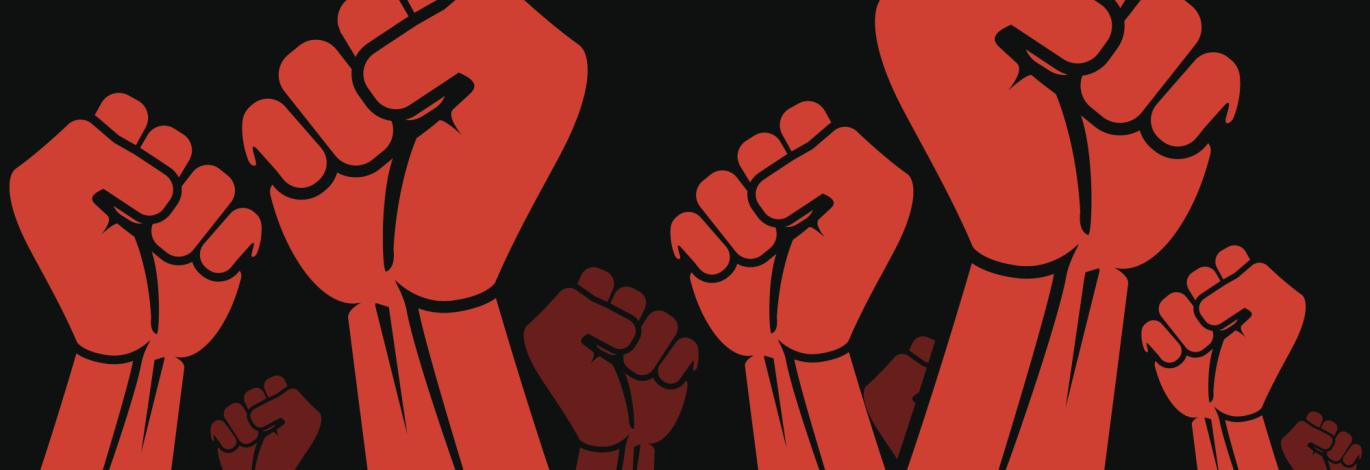
T he Aurat March is an annual procession that takes place on International Women’s Day (8th March), across major cities of Pakistan. It aims to encourage women to take up public and digital space to demand equality, and focuses on central themes conveyed via a manifesto each year. It marks a first for feminists in Pakistan as they campaign for social change at the individual and domestic level against an invisibilized patriarchal entity. It also features women’s increased participation in traditionally male-dominated arenas such as the digital sphere and public spaces. This form of participation, coupled with the March’s campaign against socially and culturally embedded patriarchal norms such as the double burden, economic emancipation and bodily autonomy, results in it facing immense amounts of backlash online, which is routinely normalized.
This paper is an attempt to acknowledge the backlash against the Aurat March in order to rid women of sweeping statements like “yeh toh hoga” (this will happen) that normalize such vitriol as a natural consequence to their actions.
 In order to understand the backlash’s manifestation, we conducted a yearlong qualitative project as our senior year thesis. Auratnama houses our findings. We conducted a thematic archival analysis of the backlash as seen via public digital interactions on the posts of the official Aurat March Pages for Lahore, Karachi, Islamabad, Multan, Quetta and Sindh, encompassing the 4 Aurat Marches from 2018 to March 2021, across Twitter, Facebook and Instagram. Our paper treats the digital sphere in three central ways: as a public space, an online archive, and a cultural text, in order to attempt to outline if there are central themes in the backlash.
In order to understand the backlash’s manifestation, we conducted a yearlong qualitative project as our senior year thesis. Auratnama houses our findings. We conducted a thematic archival analysis of the backlash as seen via public digital interactions on the posts of the official Aurat March Pages for Lahore, Karachi, Islamabad, Multan, Quetta and Sindh, encompassing the 4 Aurat Marches from 2018 to March 2021, across Twitter, Facebook and Instagram. Our paper treats the digital sphere in three central ways: as a public space, an online archive, and a cultural text, in order to attempt to outline if there are central themes in the backlash.
Our paper outlines our results across seven central themes. These include gendered performance, body politics, cultural values, questioning the politics of the march, threats of aggression, religious values, and manifestations of the backlash post the March itself. This elucidates the fact that the online sphere is a digital manifestation of the public sphere and women’s participation in it is met with resistance due to preexisting cultural edifices of curtailing women to the private sphere. In addition, it establishes that women’s participation online is met with backlash, in particular when they express support for a feminist movement that threatens the current heteronormative, patriarchal ideal.
While much of this backlash is levied by men, there is marked participation by women as well. When analyzed, this was seen to exhibit features of internalization of anti-feminist sentiments for societal acceptance. The Aurat March’s manner of making the personal political causes discomfort and the vitriol online is seen to be a mechanism of curtailment. With the backlash causing increasingly dangerous offline repercussions, like the blasphemy allegations in 2021, the influence of the online sphere in constructing narratives and forming public sentiments cannot be understated. This paper is an attempt to acknowledge the backlash against the Aurat March in order to rid women of sweeping statements like “yeh toh hoga” (this will happen) that normalize such vitriol as a natural consequence to their actions.
Duaa Rehman is a graduate of the LUMS class of 2021, with a degree in Anthropology and Sociology. They are interested in social movements and social justice as well as gender and feminist theory.
Fatima Azeem is a graduate of the LUMS class of 2021, having majored in Anthropology and Sociology. She is interested in the intersection of crime and gender, and feminist sociology.
